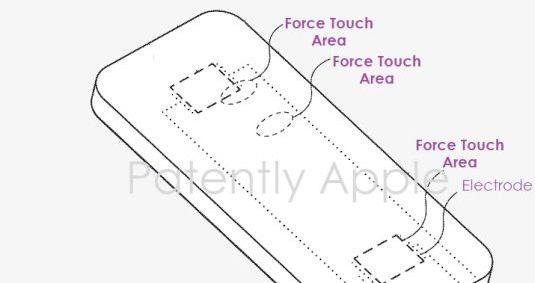Powerful neural networks could soon train on smartphones with dramatically faster speeds and less energy.


There is also the fact that privacy crusader Max Schrems undercut Apple’s holier-than-thou privacy image last month when his digital rights group Noyb targeted the tech giant in Germany and Spain, claiming that Apple’s “Identifier for Advertisers” (IDFA) tracking ID, which is automatically generated on every iPhone during setup, allows Apple, app makers and ad networks to follow an individual user’s activities and use that data to show them ads targeted at their interests. Apple has said those claims are “factually inaccurate”.
Fundamentally though, the underlying message of Federighi’s keynote today was clear: Apple is not budging on its new privacy standards, they will come at the start of 2021, and it will play hardball with other tech giants if necessary, at least in certain markets.
Terms and conditions may not apply in China.®.
There are technologies just around the corner which will change the world, and our lives, massively, and for the better…in ways many cannot even start to imagine.
So in have done just that.
This is what I think some of the most profound changes will be and how they will make all our lives so better than we could even hope for…
Have an awesome day everyone.
In What Will The Near Future Look Like — Emerging Technology That Will Change Our World, I will be investigating the amazing top technology of the future to imagine the amazing things that will happen and how life will be different in the future scenarios.
India is positioning itself as a smartphone-production hub amid a U.S.-China trade war that has disrupted global supply chains and left tech firms such as Apple and Samsung looking for alternatives to China to manufacture their products. Photo: Olivier Le Hellard for The Wall Street Journal.
More from the Wall Street Journal:
Visit WSJ.com: http://www.wsj.com.
Visit the WSJ Video Center: https://wsj.com/video.
On Facebook: https://www.facebook.com/pg/wsj/videos/
On Twitter: https://twitter.com/WSJ
On Snapchat: https://on.wsj.com/2ratjSM
#WSJ #India #Technology

Imagine swabbing your nostrils, putting the swab in a device, and getting a read-out on your phone in 15 to 30 minutes that tells you if you are infected with the COVID-19 virus. This has been the vision for a team of scientists at Gladstone Institutes, University of California, Berkeley (UC Berkeley), and University of California, San Francisco (UCSF). And now, they report a scientific breakthrough that brings them closer to making this vision a reality.
One of the major hurdles to combating the COVID-19 pandemic and fully reopening communities across the country is the availability of mass rapid testing. Knowing who is infected would provide valuable insights about the potential spread and threat of the virus for policymakers and citizens alike.
Yet, people must often wait several days for their results, or even longer when there is a backlog in processing lab tests. And, the situation is worsened by the fact that most infected people have mild or no symptoms, yet still carry and spread the virus.

A 15-year-old Colorado high school student and young scientist who has used artificial intelligence and created apps to tackle contaminated drinking water, cyberbullying, opioid addiction and other social problems has been named Time Magazine’s first-ever “Kid of the Year.”
Gitanjali Rao, a sophomore at STEM School Highlands Ranch in suburban Denver who lives in the city of Lone Tree, was selected from more than 5,000 nominees in a process that culminated with a finalists’ committee of children, drinking water crisis in Flint, Michigan, inspired her work to develop a way to detect contaminants and send those results to a mobile phone, she said.
“I was like 10 when I told my parents that I wanted to research carbon nanotube sensor technology at the Denver Water quality research lab, and my mom was like, ” A what?” Rao told Jolie. She said that work ” is going to be in our generation’s hands pretty soon. So if no one else is gonna do it, I’m gonna do it.”

It’s my firm belief that the AI revolution we’ve all been so excited about simply has not happened yet. In the next two to three years however, as the hardware that enables “real” AI power makes its way into more and more hands, it will happen. As far as predicting the change and disruption that will come from widespread access to the upper echelons of powerful ML and AI — there are few ways to make confident predictions, but that is exactly the point!
Much like cellphones put so much power in the hands of regular people everywhere, with no barriers to entry either technical or financial (for the most part), so will the coming wave of software-defined hardware that is flexible, customizable and future-proof. The possibilities are truly endless, and it will mark an important turning point in technology. The ripple effects of AI democratization and commoditization will not stop with just technology companies, and so even more fields stand to be blown open as advanced, high-powered AI becomes accessible and affordable.
Much of the hype around AI — all the disruption it was supposed to bring and the leaps it was supposed to fuel — will begin in earnest in the next few years. The technology that will power it is being built as we speak or soon to be in the hands of the many people in the many industries who will use their newfound access as a springboard to some truly amazing advances. We’re especially excited to be a part of this future, and look forward to all the progress it will bring.
Instead of inserting a card or scanning a smartphone to make a payment, what if you could simply touch the machine with your finger?
A prototype developed by Purdue University engineers would essentially let your body act as the link between your card or smartphone and the reader or scanner, making it possible for you to transmit information just by touching a surface.
The prototype doesn’t transfer money yet, but it’s the first technology that can send any information through the direct touch of a fingertip. While wearing the prototype as a watch, a user’s body can be used to send information such as a photo or password when touching a sensor on a laptop, the researchers show in a new study.

The annual meeting of the Radiological Society of North America highlighted how artificial intelligence is being used to augment medical imaging.
RSNA 2020, the annual meeting of the Radiological Society of North America, showcases the latest research advances and product developments in all areas of radiology. Here’s a selection of studies presented at this year’s all-virtual event, all of which demonstrate the increasingly prevalent role played by artificial intelligence (AI) techniques in diagnostic imaging applications.
Deep-learning model helps detect TB
Early diagnosis of tuberculosis (TB) is crucial to enable effective treatments, but this can prove challenging for resource-poor countries with a shortage of radiologists. To address this obstacle, Po-Chih Kuo, from Massachusetts Institute of Technology, and colleagues have developed a deep-learning-based TB detection model. The model, called TBShoNet, analyses photographs of chest X-rays taken by a phone camera.
